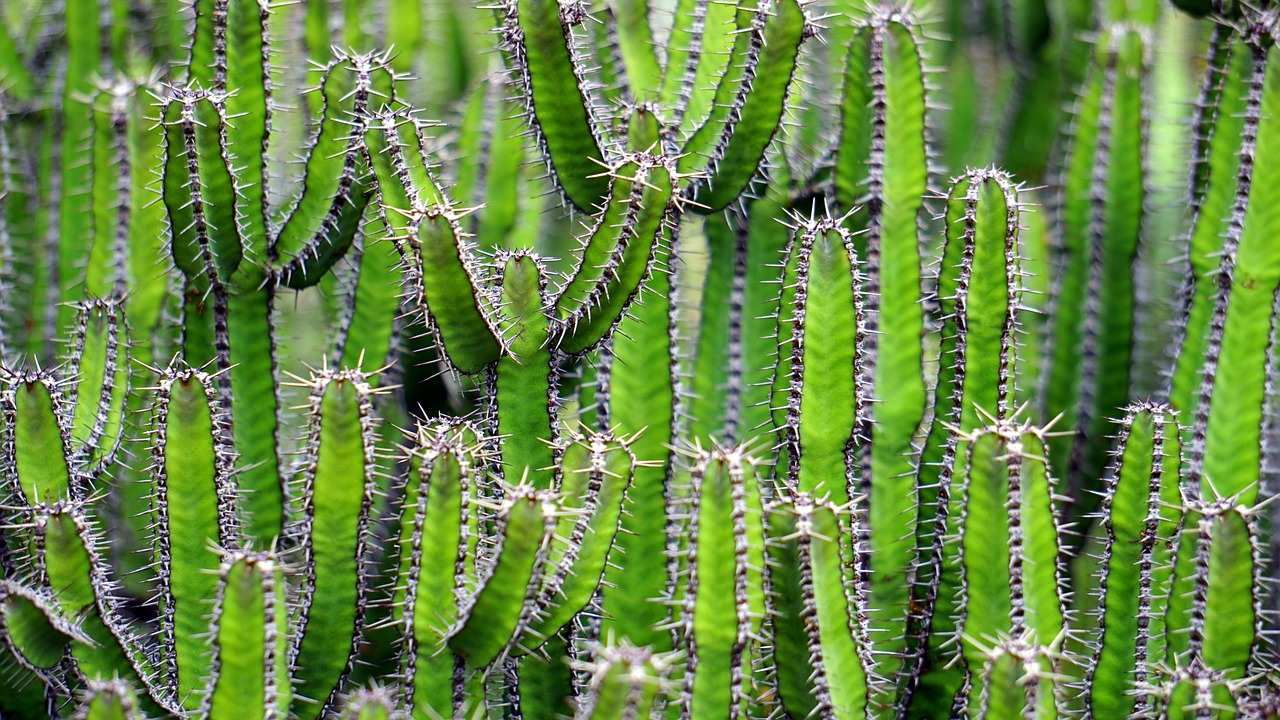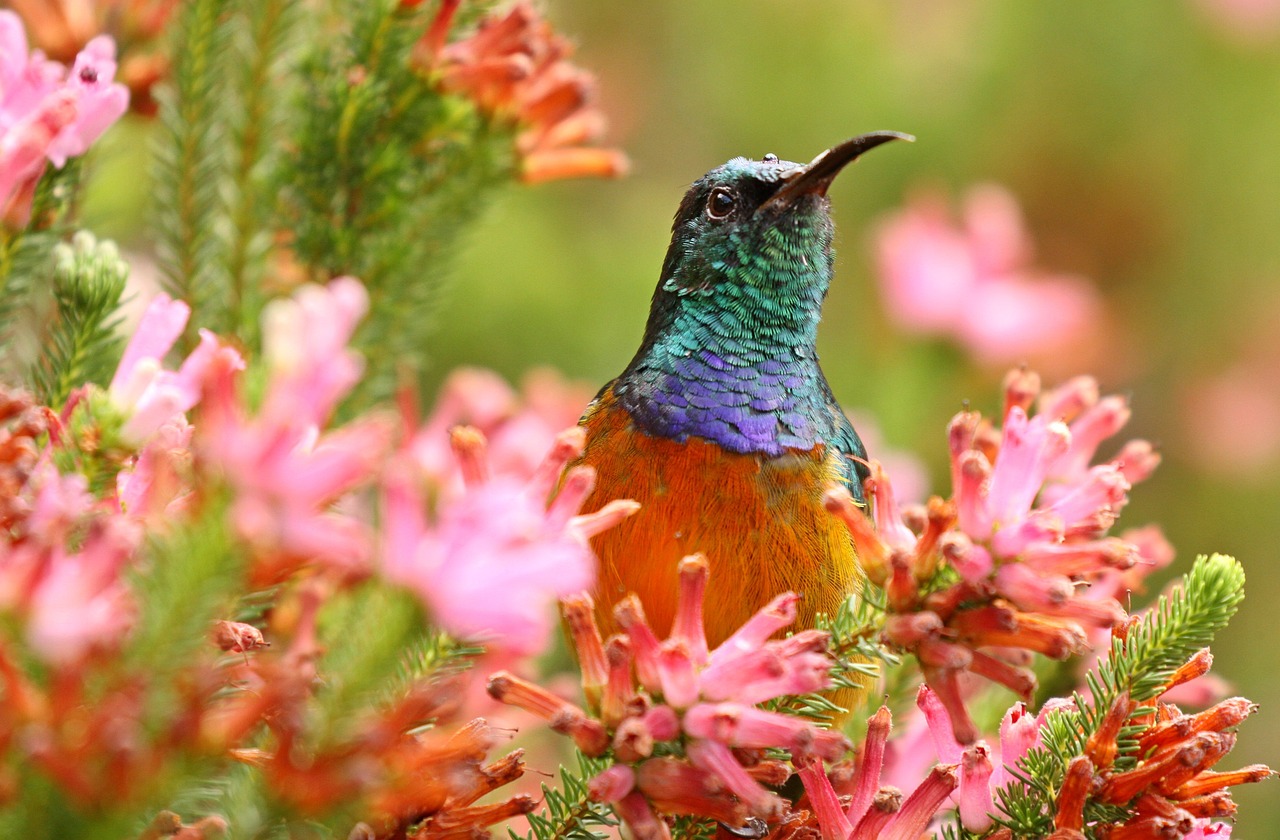It’s that time of year in the Southern Hemisphere when the days get longer, the temperatures rise and bright colours return to the land, specifically in the many iconic national gardens and smaller floral gems that pop up to invite exploration.
I look to the country’s iconic gardens as they throw open their gates and flaunt their budding beauty, many reflecting the nation’s rich natural legacy in their displays and lush landscapes. Floral treasures include king protea and the unique-looking strelitzia – one named ‘Mandela’s Gold’ for Nelson Mandela, with indigenous succulents, towering aloes, hundreds of species of erica, rare cycads, fynbos and a large assemble of bulb plants too.
South Africa’s National Botanical Gardens, Living Legacies
Across the country, we find nine established gardens under the South African National Biodiversity Institute (SANBI), with two more under development. The flagship Kirstenbosch National Botanical Garden in Cape Town is the first of its kind in the world and is dedicated to indigenous flora, including the Namaqualand daisies and vygie, as well as Baobab and cycads. A must-see for visitors to Cape Town, especially in spring and early summer (August-November). An added attraction is the Kirstenbosch Summer Sunset Concerts which kick off each November.
The Hantam National Botanical Gardens outside Nieuwoudtville in the Northern Cape explores wild secrets under endless skies on over 6,000 hectares that are home to renosterveld and Karoo succulents. Nine trails lead through a variety of habitats and soil types, between 80 species of plants endemic to the Bokkeveld Plateau and over 1350 types of flowers. Spring coincides with the Namaqualand wildflower season providing a dramatic display attracting bird species including the Secretary bird, the threatened Blue Crane and the rare endangered Black Harrier.
Africa’s oldest botanical garden, Durban’s Botanic Gardens, came into being in 1848 when members of the Natal Agriculture and Horticultural Society met to found a botanical garden as part of the newly re-established Kew Gardens in England. A living oasis, it has a collection of cycads and palms, a Japanese garden, an indigenous forest, a living beehive, and a ‘garden of senses’. Don’t miss the giant scones at the tea garden, and do visit the lily pond with its gazebo, bell tower and art sculptures.
Walter Sisulu Botanical Garden west of Johannesburg is an urban wild garden named after the late struggle stalwart, Walter Sisulu. Regularly voted Gauteng’s foremost place to get back to nature, it was founded in 1982. The Garden and nature reserve are home to an abundance of wildlife with about 240 bird species recorded on site, including a breeding pair of Verreaux’s Eagles that nest on the cliffs near the waterfall.
The Harold Porter Botanical Garden in Betty’s Bay in the Kogelberg Biosphere Reserve is in the heart of the Fynbos region and holds a unique position between mountain and sea. As spring approaches it becomes awash with blooming flowers. Look for the delicate Erica genus, commonly known as heaths, which blanket the landscape in shades of pink, white, and lavender. The garden’s Disa Kloof showcases the rare Disa, a terrestrial orchid that finds its home in the mountain slopes and deep gorges. The garden has waterfalls and amber pools, lawns to linger on and baboons passing through.
Open Gardens, Intimate Floral Inspiration
The announcement of Spring invites access to tended spaces that welcome visitors to a blend of colour, fragrance, flowers and shrubbery that have been meticulously maintained by passionate horticulturists and gardeners. Founded 16 years ago, is the annual Bedford Country Gardens in the Eastern Cape. Over three days, explore country roads, linger in farm gardens and meet like-minded enthusiasts ready to swap ideas on how to ‘bloom where you are planted’. The Open Garden route straddles mountains, grassland biomes and game farms. This is prime terrain for hiking, trail running and mountain bikes and you can expect live music, markets and art. The festival will take place from 20 to 22 October, and again 3 to 5 November 2023.
Outside Stellenbosch, the Rustenberg Manor House Open Garden will run from 3 to 5 November. Walk the historic garden with its Cape Dutch buildings and mature trees. Showcasing an English style, the focus is on heritage roses as well as planting schemes such as the Sunken Garden and the Almond Walk. At the Schoongezicht Manor House near the wine-tasting centre, you’ll find a 200-year-old pergola and charming labyrinth, roses, foxgloves, and perennials, and a delightful pond, hedges and paths, all with views of Simonsberg Mountain.
The Franschhoek Open Garden festival will be hosted in November and will have eleven gardens from charming village homes to stunning expansive farm yards exhibiting.





Lesser Known Gems
Others unveiling their Spring wonders include the Stellenberg Gardens in Cape Town which combines history and horticulture. Dating back to the 18th century, the garden has an impressive collection of roses and other exotic plants.
Water Oak Farm in the Constantia Valley is a delight. Take the water-oak-lined driveway that leads to the rose garden, succulent garden and water features. A gardener’s paradise and an ever-evolving labour of love which has evolved with its passionate owners. Beechwood Gardens in Johannesburg’s Hyde Park is an escape to a beautifully manicured garden that goes back to 1945. This classic two-hectare garden features magnificent trees, including a colossal Water Oak believed to be the largest tree in Johannesburg. The tranquil sanctuary is a labour of love for Christopher and Susan Greig who acquired Beechwood some 20 years ago. Features include the water lily lake, waterfalls and ponds, a formal rose garden and a spectacular vegetable garden.
These heritage gardens encapsulate the nation’s floral wonders and whether you’re a gardening enthusiast, nature lover, or are seeking solitude, a journey through any of them promises to remind you of the significance of seasons and the diversity of nature.
** This article first appeared in Lexus Life.





















Discussion about this post